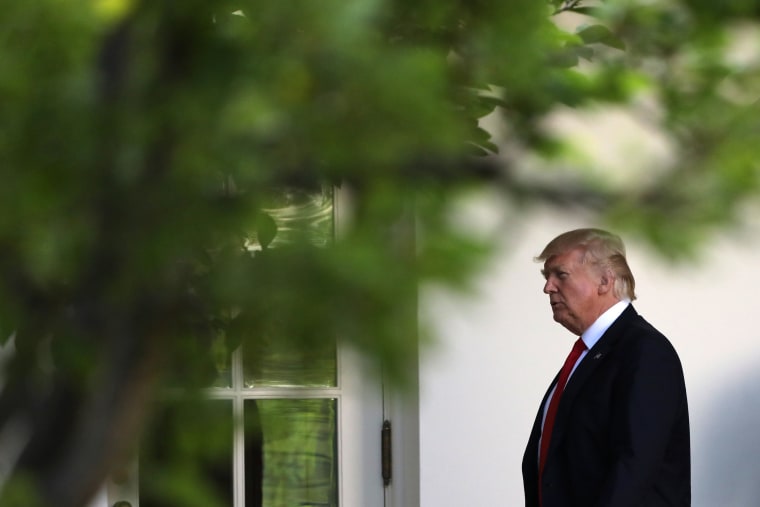PIRRO: What about the idea that in a tweet you said there might be tape recordings--TRUMP: Well, I can't talk about. I won't talk about that.
That's very likely the line the White House's counsel's office told Trump to take, but it was far too late. The president's tweet already opened the door that won't be easily closed.The significance of this, of course, is that these recordings -- if they exist -- can be subpoenaed. This is especially true in regards to recordings related to James Comey's firing, since the president may have obstructed justice during their chat.Indeed, on many of the Sunday shows yesterday, there was bipartisan agreement among several senators that White House recordings, assuming Trump didn't just make this up, won't remain private indefinitely. “You can’t be cute about tapes,” Sen. Lindsey Graham (R-S.C.) said on NBC's "Meet the Press," adding, “If there are any tapes of this conversation, they need to be turned over."Sen. Mike Lee (R-Utah) added on Fox News that "it’s probably inevitable” that any existing tapes would be subpoenaed. The Utah Republican added that it's “not necessarily the best idea” for the president to secretly record conversations in the White House without his guests' knowledge.Congressional Democrats, not surprisingly, spoke about obtaining the recordings in even more forceful terms and have begun weighing procedural steps they could pursue to tie up Capitol Hill until this question is resolved.It's at this point that some of you are probably wondering whether Team Trump spent the weekend destroying recordings before they could be subpoenaed. With this question in mind, Daniel Jacobson, who was an attorney in the Obama White House, noted over the weekend that the Presidential Records Act -- which, ironically, was created in part in response to Richard Nixon's secret recordings -- would require that these recordings be archived. It would be a literal crime to delete them.The debate continues, meanwhile, as to whether the recordings are real or a figment of Donald Trump's deeply strange imagination. We'll probably learn the truth soon enough, but in the interim, it's worth noting for context that Trump has a lengthy track record of recording communications -- at Trump Tower, at various other Trump-owned properties, and elsewhere.In other words, this wouldn't exactly be out of character for him.
